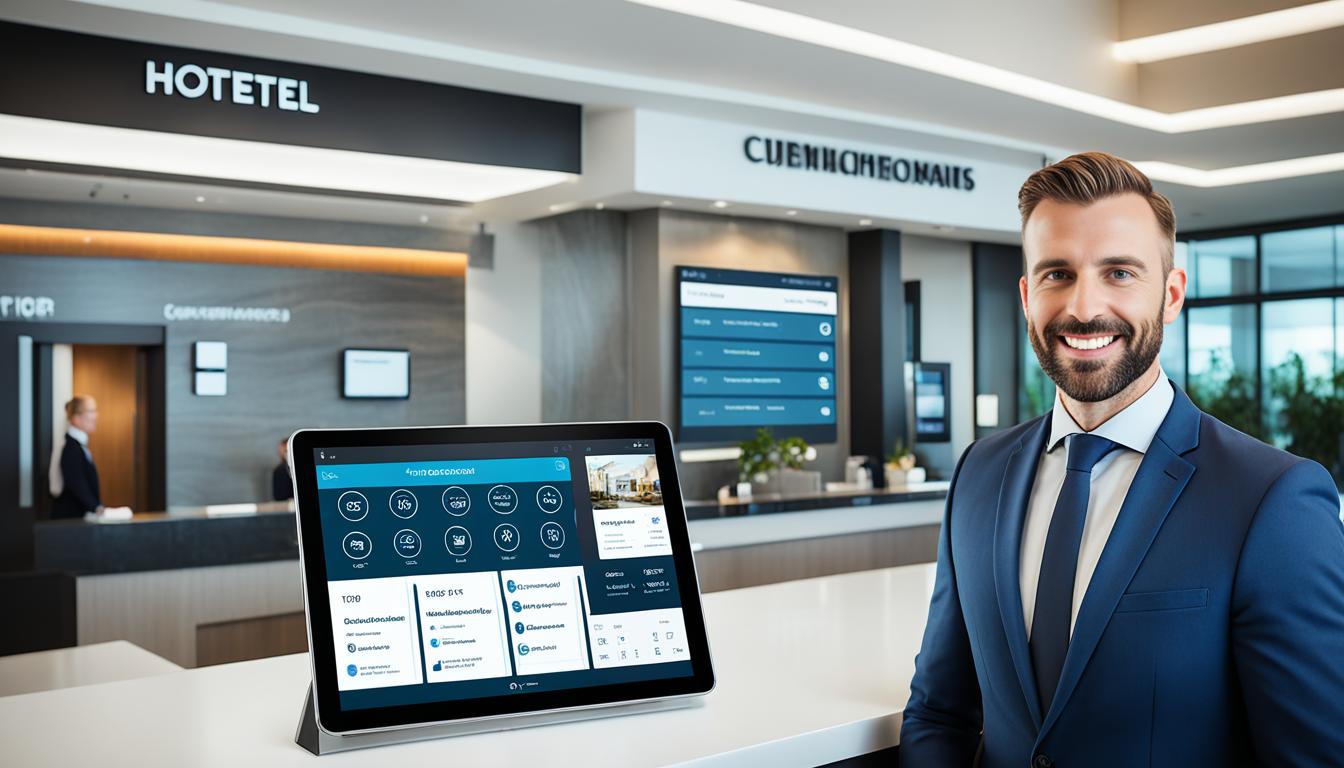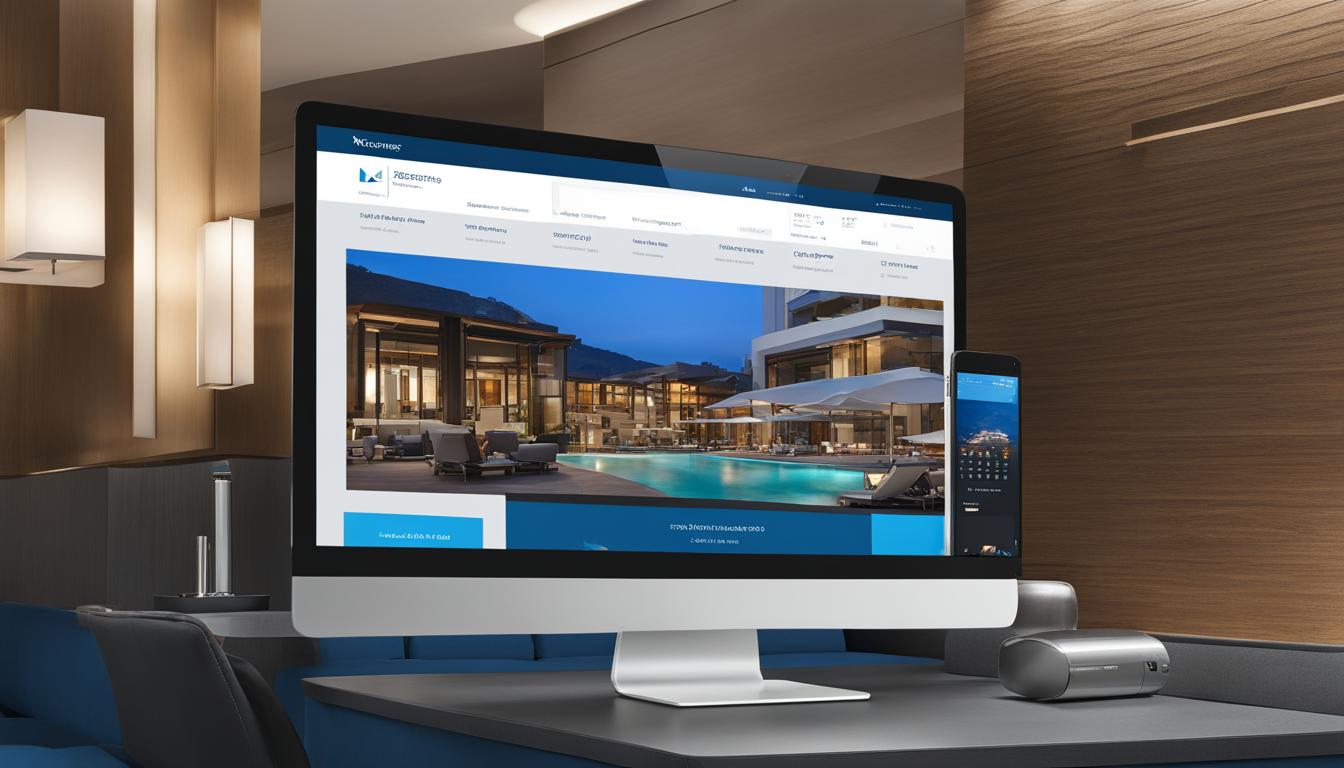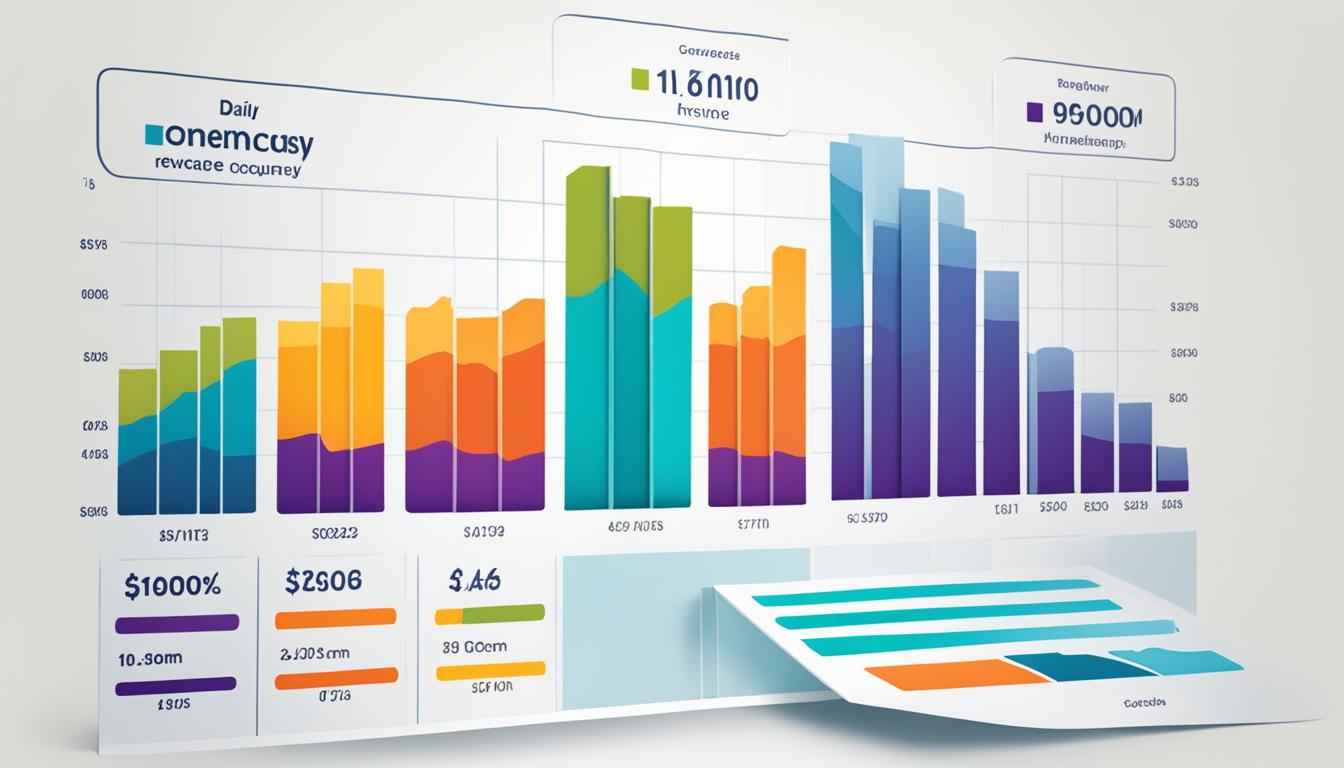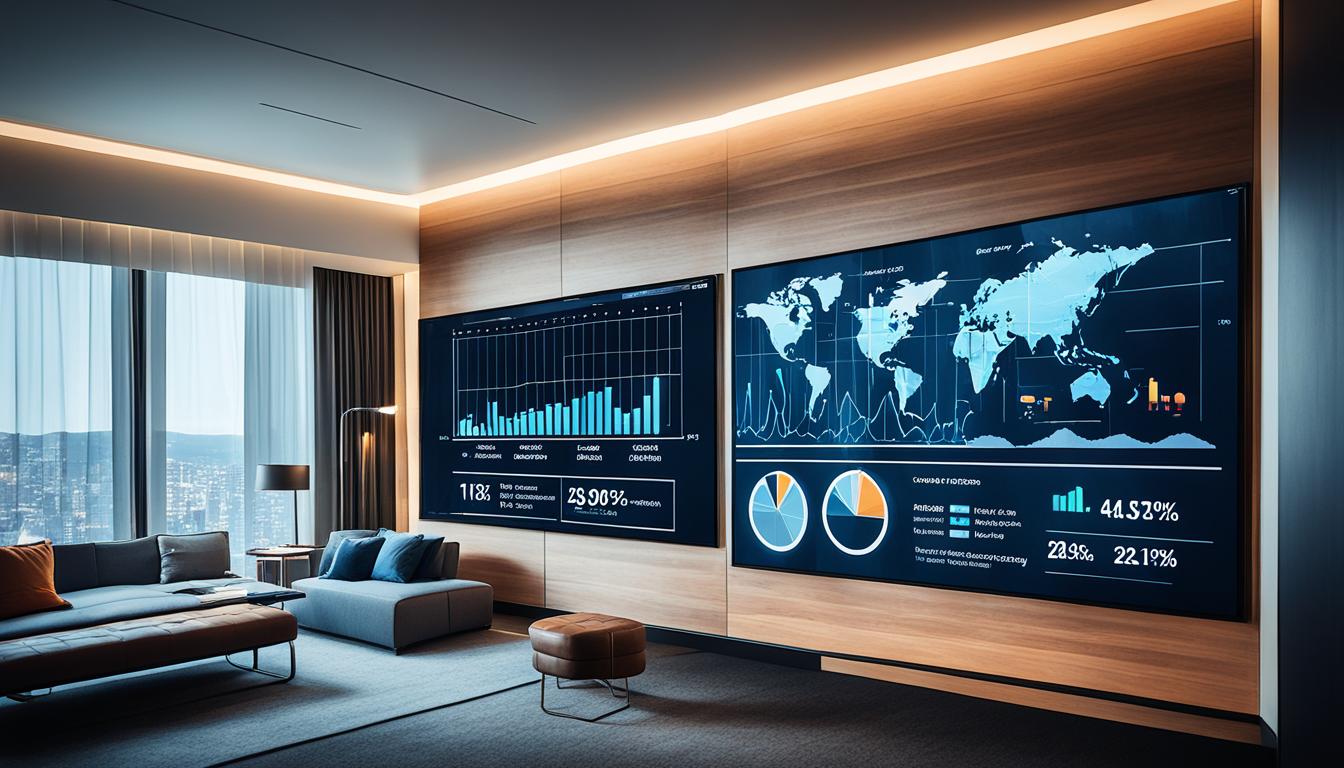Welcome to our comprehensive guide on effective blogging strategies for hotel websites. In this article, we will explore how hoteliers can leverage the power of blogging to add value for their guests and enhance the overall guest experience.
As the digital landscape continues to evolve, hotel websites play a crucial role in attracting and engaging potential guests. While a visually appealing website is important, providing valuable content through a well-crafted blog can significantly differentiate your hotel from the competition.
By implementing effective blogging strategies, hotel websites can offer more than just booking information. They become a valuable resource for travelers, providing insights into local attractions, tips for exploring the destination, and special offers tailored to their needs.
Adding value through informative and engaging blog content not only enhances the guest experience but also helps establish your hotel as an authority in the industry. Guests appreciate hotels that go the extra mile to provide valuable information, and this can result in increased customer loyalty and positive word of mouth.
Utilizing a Hotel Website Builder
When it comes to developing a strong online presence for your hotel, having an attractive and user-friendly website is crucial. One effective way to achieve this is by utilizing a hotel website builder software. These tools provide hoteliers with the necessary features and advantages to create a professional website that caters to the needs of their guests.
One such hotel website builder that stands out is PlanetHMS. With its intuitive interface and a wide range of customizable templates, PlanetHMS makes it easy for hoteliers to create a visually appealing website that aligns with their brand identity.
By using a hotel website builder like PlanetHMS, hoteliers can take advantage of various features, such as:
1. Responsive Design:
A responsive design ensures that your website adapts seamlessly to different screen sizes, from desktop to mobile. This is crucial in today’s mobile-first world, where more and more travelers are using their smartphones to browse and book accommodations. With a responsive website, you can provide an optimal browsing experience for your guests, regardless of the device they are using.
2. Easy Content Management:
A good hotel website builder simplifies content management, allowing hoteliers to easily update and modify their website content without the need for technical expertise. This means you can keep your website up-to-date with the latest information, including room availability, rates, and special offers.
3. Seamless Integration:
A hotel website builder should offer seamless integration with other hotel management systems, such as property management systems (PMS) and online booking engines. This ensures a smooth flow of information between your website and these systems, eliminating the need for manual data entry and reducing the risk of errors.
By leveraging the features and advantages offered by a hotel website builder like PlanetHMS, hoteliers can create a compelling online presence that not only attracts guests but also provides them with a seamless browsing and booking experience. With an attractive and user-friendly website, you can effectively showcase your hotel’s unique features, amenities, and services, making a lasting impression on potential guests and driving direct bookings.
Enhancing Hotel Website Marketing
In today’s digital age, effective hotel website marketing is essential for attracting and engaging potential guests. Hoteliers need to leverage various strategies and tactics to ensure their websites stand out from the competition and reach a wider audience. By utilizing digital marketing channels such as social media, email marketing, and online advertising, hotels can enhance their visibility and drive bookings.
One key aspect of hotel website marketing is the use of social media. Platforms like Facebook, Instagram, and Twitter provide the perfect opportunity to showcase the hotel’s unique offerings, share guest testimonials, and promote special offers. Hotels can also engage with their audience through regular updates and interactive content, encouraging guests to share their experiences and build a sense of community.
Another effective marketing strategy is email marketing. By collecting guest email addresses through website sign-ups or bookings, hotels can establish direct communication with their target audience. Hoteliers can send personalized offers, newsletters, and updates to keep guests informed and engaged. It’s important to provide valuable content in these emails, such as information about upcoming events, local attractions, and exclusive discounts, to drive traffic back to the hotel website.
Online advertising is another powerful tool for hotel website marketing. By utilizing platforms like Google Ads or display advertising networks, hotels can target specific demographics and geographic locations. Displaying visually appealing ads across relevant websites and search engine results pages can generate brand awareness and lead potential guests to the hotel website. It’s crucial to create compelling ad copy and use captivating visuals to capture the attention of the audience.
To measure the effectiveness of these marketing efforts, it’s essential for hoteliers to utilize analytics tools. Platforms like Google Analytics provide valuable insights into website traffic, user behavior, and conversion rates. By analyzing this data, hoteliers can make informed decisions and optimize their marketing strategies for better results.
By implementing these hotel website marketing strategies, hoteliers can effectively promote their offerings, engage with potential guests, and drive bookings. It’s important to regularly evaluate and refine marketing efforts to ensure they align with the target audience and deliver maximum impact.
Optimizing Hotel Website SEO
When it comes to hotel website SEO, implementing best practices is crucial to improve your website’s visibility and rankings in search engine results. In this section, we will provide valuable insights into optimizing your hotel website for search engines.
1. Keyword Research:
Identifying relevant keywords is the foundation of effective SEO. Conduct thorough keyword research to understand what your target audience is searching for. Include these keywords strategically in your website content, meta tags, headings, and image alt tags to signal search engines about the relevance of your website.
2. On-Page Optimization:
Optimize your website’s on-page elements to enhance its search engine rankings. This includes optimizing URL structures, using descriptive meta tags, writing compelling title tags, and incorporating relevant keywords naturally throughout your content. Implementing schema markup can also help search engines understand your content better.
3. Link Building:
Building high-quality backlinks is an essential part of improving your hotel website’s authority and ranking. Seek opportunities to collaborate with other reputable websites, such as local business directories, travel blogs, and industry influencers. Focus on acquiring links from relevant and trustworthy sources to enhance your website’s credibility.
4. Local SEO Strategies:
Since hotels primarily target a specific geographic location, optimizing your website for local searches is vital. Ensure your website is listed on Google My Business and other local directories. Optimize your location-specific content, use geographically targeted keywords, and encourage guest reviews to boost your local search visibility.
Creating High-Quality Blog Content
When it comes to hotel websites, the importance of high-quality blog content cannot be overstated. Blogging strategies play a crucial role in engaging guests, attracting new visitors, and adding value to their overall experience.
Hotel blogs provide an excellent platform to share valuable information and enhance the guest’s understanding of the destination. By offering destination guides, guests can learn about local attractions, popular landmarks, and hidden gems that will make their stay more enjoyable.
Events and special offers are also great topics to cover in hotel blogs. By highlighting upcoming events or limited-time promotions, hotels can create a sense of urgency and entice guests to make a reservation. This strategy not only adds value but also brings increased visibility to the hotel website.
Engaging readers is another critical aspect of creating high-quality blog content. One effective way to achieve this is by crafting compelling storytelling that resonates with the target audience. By sharing unique experiences, personal anecdotes, and behind-the-scenes insights, hotels can build a strong connection with readers.
Driving traffic to the website is equally important. One effective approach is to optimize each blog post for search engine visibility by incorporating relevant keywords, meta tags, and internal links. Additionally, promoting blog content through social media channels, email newsletters, and collaborations with influencers can significantly increase its reach.
Conclusion
Effective blogging strategies play a crucial role in enhancing hotel websites and adding value for guests. By providing valuable and engaging content, hoteliers can create a memorable guest experience and drive business growth.
Utilizing a hotel website builder, such as PlanetHMS, offers numerous benefits. From user-friendly interfaces to customizable templates, these tools empower hoteliers to create attractive websites that reflect their brand’s unique identity. Additionally, effective marketing techniques, including leveraging social media, email campaigns, and online advertising, help hoteliers reach a wider audience and generate more bookings.
Optimizing hotel website SEO ensures that prospective guests can easily find and engage with the website. By conducting thorough keyword research, implementing on-page optimization techniques, building high-quality backlinks, and utilizing local SEO strategies, hoteliers can improve their website’s visibility and rankings in search engine results.
Creating high-quality blog content is crucial for hotel websites. By sharing destination guides, local attractions, events, and exclusive offers, hoteliers can engage readers and establish themselves as a trusted resource. Engaging content not only drives traffic to the website but also enhances the guest experience, increasing the likelihood of booking conversions.
In conclusion, implementing effective blogging strategies, utilizing a hotel website builder, marketing the website, optimizing SEO, and creating valuable blog content are essential components of a successful hotel website. By following these practices, hoteliers can enhance the guest experience, drive business growth, and establish their brand as a leader in the industry.







